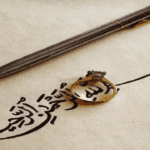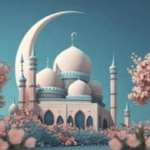In many cultures, the act of consuming food and beverages is not merely a physical necessity but a deeply rooted tradition intertwined with spirituality. One such tradition that resonates across various communities is the practice of reciting specific prayers before partaking in certain foods. In this article, we delve into the enchanting world of “Dhoodh Peeny Ki Dua,” exploring its meaning, cultural significance, religious importance, and the fusion of tradition with modern-day wellness.
Contents
- 1 The Power of Prayers
- 2 Dhoodh Peeny Ki Dua – Meaning and Purpose
- 3 Cultural Traditions and Rituals
- 4 Religious Significance
- 5 Health Benefits of Drinking Milk
- 6 How to Recite the Dua
- 7 Personal Stories and Testimonials
- 8 Cultural Variations in Milk Consumption
- 9 Common Misconceptions
- 10 Celebrating Diversity through Dua
- 11 Dua in Daily Life
- 12 Impact on Mental Well-being
- 13 Teaching the Dua to the Next Generation
- 14 Conclusion
- 15 FAQs (Frequently Asked Questions)
- 15.1 Is “Dhoodh Peeny Ki Dua” specific to any particular culture or religion?
- 15.2 Can I recite the dua in my native language?
- 15.3 Are there other prayers associated with different foods?
- 15.4 Does “Dhoodh Peeny Ki Dua” have a specific time or occasion?
- 15.5 How can I encourage my family to embrace this tradition?
The Power of Prayers
Before we embark on understanding the intricacies of “Dhoodh Peeny Ki Dua,” let’s take a moment to appreciate the power of prayers in our lives. Prayers have been a universal means of connecting with the divine, seeking guidance, expressing gratitude, and fostering a sense of humility. In a world filled with hustle and bustle, taking a moment for a prayer before a simple act like drinking milk can infuse our lives with mindfulness and gratitude.
Dhoodh Peeny Ki Dua – Meaning and Purpose
“Dhoodh Peeny Ki Dua” translates to the prayer for drinking milk. It is a short yet profound supplication that reflects the acknowledgment of the blessings bestowed upon us, particularly in the form of nourishment. The purpose of reciting this dua extends beyond a mere ritual; it’s a heartfelt expression of gratitude for the sustenance provided.
اَللّٰهُمَّ بَارِكْ لَنَا فِيهِ وَزِدْنَا مِنْهُ
In English: O Allah Azzawajal give us abundance in this and grant us more then this.
in Hindi: हे अल्लाह अज़्ज़ावजल हमें इसमें प्रचुरता दे और हमें इससे भी अधिक प्रदान कर।
Cultural Traditions and Rituals
Across the globe, different cultures have unique traditions associated with the consumption of milk. From the English afternoon tea with milk to Indian masala chai, each culture has its way of incorporating this nutrient-rich beverage into daily life. These traditions, rooted in history and customs, add a vibrant tapestry to the global landscape of milk consumption.
Religious Significance
In Islamic traditions, the act of drinking milk is elevated to a spiritual practice through “Dhoodh Peeny Ki Dua.” Islam places a profound emphasis on expressing gratitude for the bounties provided by the Creator. This dua encapsulates that sentiment, reminding believers to be mindful even in seemingly mundane activities.
Health Benefits of Drinking Milk
Beyond its cultural and religious dimensions, drinking milk comes with a plethora of health benefits. Packed with essential nutrients like calcium, vitamin D, and protein, milk contributes to bone health, immune function, and overall well-being. When coupled with the spiritual act of reciting the dua, the physical and metaphysical aspects harmoniously intertwine.
How to Recite the Dua
For those unfamiliar with the pronunciation and recitation of “Dhoodh Peeny Ki Dua,” here’s a simple guide. Begin by saying, “Bismillah” (In the name of Allah) and follow with the dua: “Allah humma barik lana feema razaqtana waqina azaaban naar.” This translates to “O Allah, bless what You have provided us and protect us from the punishment of the hellfire.” Emphasizing the correct pronunciation adds sincerity to the prayer.
Personal Stories and Testimonials
To understand the real impact of incorporating “Dhoodh Peeny Ki Dua” into one’s routine, let’s hear from individuals who have embraced this practice. Sarah, a young professional, shares, “Reciting the dua before drinking milk has transformed a mundane task into a moment of reflection. It’s a simple yet powerful way to infuse my day with gratitude.” Such testimonials underscore the transformative potential of blending spirituality with daily habits.
Cultural Variations in Milk Consumption
As we traverse the globe, we witness diverse approaches to milk consumption. From the Scandinavian love for dairy products to the Ethiopian tradition of drinking spiced milk, each culture adds a unique flavor to this universal dietary staple. “Dhoodh Peeny Ki Dua” acts as a common thread, weaving through these cultural variations, emphasizing gratitude as a universal language.
Common Misconceptions
In exploring the practice of reciting a dua before drinking milk, it’s essential to dispel any misconceptions. Some may perceive it as a rigid ritual with no tangible benefits. On the contrary, this dua serves as a reminder to pause, reflect, and express gratitude—a practice relevant to individuals of all backgrounds.
Celebrating Diversity through Dua
In a world marked by diversity, “Dhoodh Peeny Ki Dua” stands as a unifying practice. Regardless of cultural or religious differences, the act of expressing gratitude before consuming nourishment is a shared human experience. Embracing this diversity fosters understanding and unity, creating a tapestry of traditions that enrich our global heritage.
Dua in Daily Life
Integrating “Dhoodh Peeny Ki Dua” into our daily lives doesn’t require grand gestures. It’s about finding moments of mindfulness in our routines. As you pour a glass of milk or stir it into your morning coffee, take a moment to recite the dua. In these small yet intentional acts, we infuse our lives with a sense of purpose and gratitude.
Impact on Mental Well-being
The connection between gratitude and mental well-being is well-established. Incorporating expressions of gratitude, such as reciting a dua, into our routines can positively influence our mental health. It serves as a daily reminder of the abundance in our lives, fostering a mindset of positivity and resilience.
Teaching the Dua to the Next Generation
Preserving cultural and religious practices is vital for passing down traditions to the next generation. “Dhoodh Peeny Ki Dua” serves as a bridge between generations, connecting the past with the present. By teaching our children the significance of expressing gratitude, we contribute to the preservation of cultural identity.
Conclusion
In the tapestry of traditions and spirituality, “Dhoodh Peeny Ki Dua” emerges as a thread that weaves through diverse cultures and religions. Beyond its cultural and religious significance, this simple prayer enriches our daily lives, transforming routine activities into moments of reflection and gratitude. As we sip our milk, let’s not merely nourish our bodies but also feed our souls with the timeless practice of expressing thanks.
FAQs (Frequently Asked Questions)
Is “Dhoodh Peeny Ki Dua” specific to any particular culture or religion?
No, while it holds significance in Islamic traditions, the practice of expressing gratitude before consuming milk is universal.
Can I recite the dua in my native language?
Yes, the sincerity of the prayer matters more than the language. Feel free to recite it in a language you are comfortable with.
Are there other prayers associated with different foods?
Yes, various cultures and religions have specific prayers for different foods, emphasizing gratitude and mindfulness.
Does “Dhoodh Peeny Ki Dua” have a specific time or occasion?
While there’s no strict rule, many choose to recite it before drinking milk as a part of their daily routine.
How can I encourage my family to embrace this tradition?
Share the significance of the dua and its positive impact. Encourage them to join you in expressing gratitude before meals.










